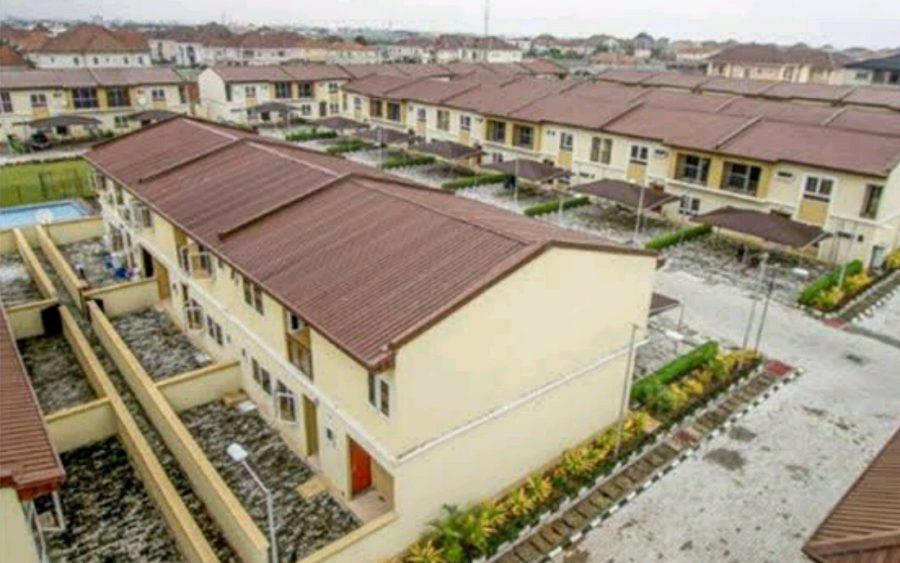In today’s world, the fight against poverty is an arduous and ongoing struggle. Despite concerted global efforts to tackle economic disparities, approaches to social welfare vary significantly among nations.
While some countries have robust systems in place to provide safety nets and support for their most vulnerable citizens, others rely more on individual resilience and market dynamics, leaving substantial portions of their populations to fend for themselves.
According to the World Bank, as of the end of 2020, 9.2% of the world’s population (719 million people) lived in extreme poverty, living on less than $2.15 per day.
Sub-Saharan Africa hosts a significant proportion of this impoverished population, with an estimated 35% living in extreme poverty in 2019.
Nigeria, despite having one of the largest economies in the region, faces significant challenges, ranking second globally in terms of its population living in poverty, with approximately 133 million people considered multi-dimensionally poor and 88.4 million living in extreme poverty as of 2022.

Recently, Nigeria has been grappling with a rising cost of living crisis, pushing more of its citizens below the poverty line. In response, many Nigerians are seeking opportunities abroad in what has been termed the “Japa Syndrome.”
Over the past few years, millions have emigrated in search of better prospects. However, beyond this trend, there are other innovative strategies to break the cycle of poverty and elevate people to the middle class. One approach involves leveraging available resources to address societal needs. Nigeria, for instance, has a significant money supply totaling N96.97 trillion as of April 2024, which, if effectively utilized, could profoundly impact the country’s social challenges and usher in transformative changes.
Financial institutions play a crucial role in the efficient allocation of resources
Financial institutions act as intermediaries, facilitating the transfer of funds from entities with surplus capital to those in need of financing. This fundamental role drives economic growth and fosters transformative changes that shape societies and empower individuals.
However, for financial institutions to effect such transformation, they must possess certain key characteristics. These include equity in the use of funds, offering investment options that hedge against inflation and currency weaknesses, a progressive consumer finance system, robust systems for homeownership finance, and a commitment to shared prosperity.
Regrettably, financial institutions in Nigeria and similar economies often lag in these aspects. For example, Nigeria’s total money supply amounts to N96.97 trillion, contributed by households, businesses, and the government. However, access to these funds is predominantly limited to the government and large corporations, leaving households as marginal beneficiaries.
When consumer finance products are available, they typically cater to short-term needs like expenses and non-durable assets such as salary advances and school fees. There is a pressing need for financial instruments that address substantial needs like long-term assets (such as mortgage financing).
Moreover, Nigerian households require investment avenues to mitigate inflation and currency devaluation risks. As of April 2024, Nigeria’s pension assets, which comprise contributions from employees and employers for retirement income, totaled N19.79 trillion as of April 2024. Over the past decade, these assets have grown nominally by 365.65% from N4.25 trillion in April 2014.
However, the funds have shrunk significantly in dollar terms, losing 43.27% to $14.88 billion from $26.23 billion, making retirees worse off. This figure will be much lower when discounted for inflation. This underscores the urgency of developing investment options that offer protection against inflation and exchange rate fluctuations.
Furthermore, enhancing financial accessibility for households to build long-term assets necessitates reducing interest rates and transaction costs. Crucially, financial institutions committed to shared prosperity prioritize both profitability and social impact. They recognize their role in fostering economic well-being beyond their immediate stakeholders, thereby contributing to broader societal prosperity.
Home Financing as a critical pillar for deploying capital for shared prosperity
Housing is a fundamental human need for security, stability, and overall well-being. Beyond its foundational role in providing shelter, housing serves as a critical asset class with unique financial attributes that can hedge against inflation and exchange rate fluctuations, while also serving as a means to pass on wealth to future generations.
Given the importance of housing, mortgage financing will play a pivotal role as a fundamental driver of shared prosperity within a nation. It serves as a cornerstone for deploying capital effectively, promoting economic stability, fostering inclusive growth, and reducing poverty levels. At its core, home financing empowers individuals and families to acquire residential property, thereby creating a tangible asset that contributes to personal wealth accumulation. By facilitating access to mortgage loans and other financing mechanisms, financial institutions enable aspiring homeowners to enter the property market.
Remarkably, homeownership is not merely an economic endeavour but a pathway to social equity and inclusive growth. Access to affordable housing through well-structured financing mechanisms promotes social mobility, reduces income inequality, and enhances overall societal well-being. By enabling individuals from diverse socio-economic backgrounds to become homeowners, home financing initiatives promote a sense of stability, belonging, and community pride.
Owning a home is essential for individuals and families, serving as a fundamental aspect of their long-term financial strategy and wealth accumulation. It offers stability and certainty in housing expenses, shielding households from rental market volatility and acting as a method of compulsory savings through mortgage payments. As property values increase over time, homeowners build equity that can be utilized for future investments, educational needs, or retirement preparations.
Moreover, home equity serves as a buffer against unforeseen financial challenges, offering homeowners the flexibility to access capital through home equity loans or lines of credit. This liquidity can be critical during emergencies or periods of economic uncertainty, empowering individuals to weather financial storms without jeopardizing their long-term financial security.
Lessons from peer country – Singapore
Evidence has shown that countries that prioritize equity in fund allocation tend to develop a widespread and inclusive homeownership system. Singapore serves as a prime example of this approach, where its mortgage system evolution has been guided by proactive government policies, accessible financing options, innovative housing solutions, and sustainable urban planning. These initiatives have played a crucial role in lifting Singaporeans from shanties to widespread homeownership, resulting in the development of millions of high-quality housing units. Today, 80% of Singaporeans reside in government-built apartments, a significant increase from the 9% figure recorded in 1959. This comprehensive strategy not only met housing needs but also spurred economic progress and strengthened social cohesion over time.
Singapore’s achievement can be attributed to several factors, including well-planned housing estates that incorporate mixed-income residences, coupled with extensive access to excellent public transportation and educational facilities. Additionally, Singaporean hawker centre, renowned for their role as community gathering spots, facilitate social interaction and communal dining among people from diverse socioeconomic backgrounds and ethnicities. Moreover, the architectural design of apartment complexes in Singapore encourages interaction among neighbours through shared corridors, fostering a sense of community and enhancing overall well-being.
Conclusion
Home financing serves as a critical pillar for deploying capital towards shared prosperity by addressing fundamental human needs, promoting economic empowerment, and facilitating intergenerational wealth transfer. By expanding access to affordable housing and equitable mortgage financing, societies can harness the transformative power of real estate investments to build stronger, more resilient communities.




















